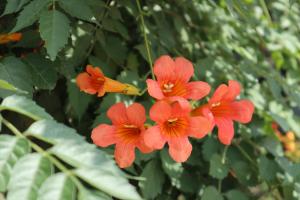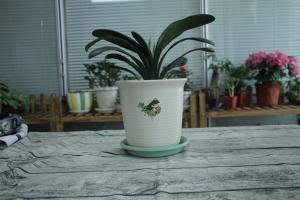A Tree Planted in Israel
It is said that when you plant a tree, you plant hope. This sentiment rings true in Israel, a country known for its desert climate, where planting trees is not only a symbol of hope, but also a vital tool for environmental sustainability.
The Importance of Tree Planting in Israel
Israel has a long history of planting trees, dating back to the early 20th century when Jewish pioneers began to settle the land. These pioneers recognized the importance of planting trees as a means of preventing soil erosion, creating shade and oxygen, and beautifying the landscape.
Today, the Israeli government encourages citizens to plant trees as a way to mitigate the effects of desertification and climate change. Through initiatives such as KKL-JNF (Keren Kayemeth LeIsrael-Jewish National Fund), the country has been able to plant over 240 million trees since its establishment in 1901.
The Symbolism of Tree Planting
Planting a tree in Israel is a symbolic act that goes beyond the environmental benefits. It is often done to commemorate significant events or to honor loved ones. For example, a bride and groom may plant a tree in Israel to symbolize their commitment to nurturing their relationship, or a family may plant a tree in memory of a loved one who has passed away.
On a larger scale, tree planting has also been used as a symbol of peace and reconciliation. In the aftermath of the 1993 Oslo Accords, Israelis and Palestinians planted trees together in an effort to build bridges of understanding between the two peoples.
The Future of Tree Planting in Israel
Despite the many benefits of tree planting in Israel, there are also challenges. Climate change is leading to increased drought and desertification, which makes it more difficult to grow and sustain trees. In addition, the Israeli-Palestinian conflict has made it difficult for trees to be planted in some areas due to security concerns.
However, there is still hope for the future. Through innovative planting techniques and technologies, such as drip irrigation and drought-resistant species, Israel is finding ways to adapt and continue its tree planting legacy. With continued commitment from the government and citizens alike, Israel can continue to plant trees and sow the seeds of hope for future generations.
Conclusion
A tree planted in Israel is more than just a tree. It is a symbol of hope, commitment, and sustainability. As Israel continues to grapple with environmental challenges, tree planting will be an important tool for mitigating the effects of climate change and building a more resilient future. By planting trees, Israelis and people around the world can make a tangible contribution to a more sustainable world.

 how many times do yo...
how many times do yo... how many planted tre...
how many planted tre... how many pine trees ...
how many pine trees ... how many pecan trees...
how many pecan trees... how many plants comp...
how many plants comp... how many plants can ...
how many plants can ... how many plants and ...
how many plants and ... how many pepper plan...
how many pepper plan...
































